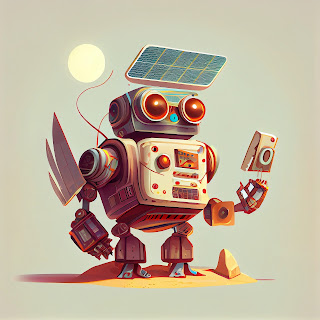In the world of technology, artificial intelligence (AI) is one of the most fascinating and quickly evolving topics. Its capabilities are growing exponentially, and it has the potential to alter the way we work and live. We will examine what AI is, its potential, how it is expanding quickly, and How AI gonna replace you in this blog article.
What exactly is AI?
Capabilities of AI
Artificial intelligence (AI): AI is a powerful tool with a wide range of potential uses. Among the most popular uses for AI are:
- Natural Language Processing (NLP): NLP is an area of artificial intelligence that focuses on comprehending and interpreting human language. Chatbots, virtual assistants, and other conversational AI systems can be developed using NLP.
- Image Recognition: AI algorithms can be programmed to identify faces, objects, and other visual elements in photographs.
- Predictive Analytics: AI can be used for predictive analytics, which is the process of analyzing huge datasets and making predictions based on them. This has a number of uses, including anticipating customer behavior, predicting sales, and spotting potential fraud.
- Robotics: AI-enabled machines are capable of carrying out a range of tasks, including production, assembly, and transportation.
How AI is Developing so Quickly?
AI is developing quickly, and its capabilities are increasing daily. A few of the major elements influencing the development of AI include:
- Machine Learning Advancements: Machine learning is a critical component of AI, and advances in this discipline are propelling AI forward. The development of new algorithms and methods makes it possible for machines to learn from data more efficiently.
- Investment in AI: AI is growing as a result of the investment. Globally, businesses and governments are making significant investments in AI research and development, which is resulting in the creation of more sophisticated AI systems. However, it's important to note that some of the biggest investors in AI are tech powerhouses like Google, Amazon, and Microsoft, as well as venture capital firms like Sequoia Capital and Andreessen Horowitz. These businesses and organizations are making significant investments in AI startups and research projects, which are promoting the development of AI and enhancing the capabilities of AI systems.
- Big Data: The development of large data is a key factor in the development of AI. Since AI algorithms need a lot of data to learn from, the development of more potent AI systems is becoming simpler as data becomes more widely available.
- Cloud Computing: The development of AI is also being fueled by the rise of cloud computing. Building more powerful systems is possible due to the easier scaling of cloud-based AI technologies.
What are the Jobs that AI will Replace?
- Jobs involving data entry and processing, such as administrative support, accounting, and bookkeeping.
- Manufacturing positions including quality control and assembly line work.
- Jobs involving transportation, such as driving, and delivery.
- Careers in customer service, including chatbot and call center labor.
- Several healthcare positions, including radiology and medical transcribing.
- Journalism and writing, like financial analysis and news stories.
Conclusion
There is no doubt that artificial intelligence (AI) has the potential to automate many tasks and replace human labor, but it's important to never forget that AI is not a universally applicable solution. The ability of AI to comprehend complicated human emotions and social relationships is currently restricted, even though it is extremely powerful when it comes to executing some jobs.
In addition, many occupations and sectors, like healthcare, hospitality, and education, that call for manual dexterity or interpersonal connection are less likely to be entirely automated by AI. As a result, decisions about whether to automate particular jobs will depend on a range of factors, including the cost and availability of AI technologies, the value of human labor, and the societal implications of automation. In addition, decisions about whether to replace human labor with AI are also influenced by economic and social issues.
The way we work and live will undoubtedly change as a result of AI, but it's essential to handle this change with caution and foresight. We should think about how AI may be used to improve and expand human capabilities as well as how it can be utilized to address some of the most serious global issues, such as climate change and healthcare, rather than just the potential for automation.


.jpg)








0 Comments